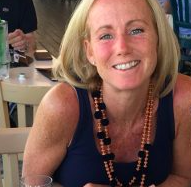
I threw my suitcase down the stairs.
On purpose, with force. It hit the wall and left a black imprint. “I can’t do this anymore!” I screamed.
My husband looked at me and told me he’d wait for me in the car. My heart was beating fast. I considered not going. And then I picked up my suitcase and slammed the front door behind me.
We got a call from my four-year-old’s oncologist that her blood work was concerning. She needed to be admitted. It was unplanned. It was unfair. And more than a year into our health crisis, my attempt to overlook obstacles for “the good of the cause” was long gone. I had cancer fatigue. It just wasn’t called that.
I was sick of sleeping on a hard slab of wood covered in heavy plastic. I longed for the water pressure of the hospital shower to rinse the shampoo from my hair. I didn’t want to eat dinner from a plastic container. I didn’t want a nurse, doctor, or specialist to “pop” in when I was about to go to bed. I couldn’t stand loud cartoons and the beep of hospital monitors.
Sharing a refrigerator with a whole floor of families drove me insane. I didn’t want to talk to a parent when I was getting my daughter, Emily, a popsicle from the patient room. I didn’t want to drive around the hospital parking garage for 20 minutes looking for a spot. And I didn’t want to live out of a suitcase that took up too much room on the floor and made it impossible for me to know how many pairs of clean underwear I had left.
If there was a reason to stay positive, I’d forgotten what it was. I woke up every morning and Emily still had cancer. “Hang in there,” people said. But I didn’t want to. Cancer had asked too much from me already. And, yet, I had no choice.
I wanted it over. The cancer, living in limbo, holding my breath, trying to pretend everything was okay, that I was okay. I couldn’t rally anymore. I had nothing left. But a health crisis doesn’t care. It forces you to dig deep.
I got in the car to take Emily to the hospital. I was too mad to cry. And too exhausted to talk. It felt like it was never going to end. That this was our life forever. A life on repeat that gave us nothing to look forward to except for the day it was all over. But there was no magic day that it was over.
Living “normally” took time. There was the day treatment ended. The day she got her central line out. The day she stopped taking one medicine and then another. A little bit every week. Just enough to boost morale. The weeks turned into years. And after several of them, I asked, “How the hell did I do that?”
I assure you, not willingly. But I still did it. I marveled at my strength to show up when I was weak. I respected all of the versions of myself that did “it.” Even the ugly ones.
I see you standing at the top of the stairs ready to throw your suitcase. Sick of wearing a mask, remote learning, not socializing, cancelled trips, postponed birthdays, watching your kids rot inside, and winter making everything worse. Feeling like this is your life forever. Feeling like life isn’t fair. Wondering if you’ll be able to keep doing the things you don’t want to do.
I speak from the future, you will. Because you have no choice. For now, you’ll wake up and there will still be a pandemic going on. But every week it will get a little better. Even when it feels like it isn’t. Keep morale up. Or be pissed. There’s no right way to do a health crisis. There’s only getting through it.
One day, in a few years or many years from now, you’ll look back on the pandemic—your health crisis—and ask yourself with awe and respect that can only be gained through hardship, “How the hell did I do that?” And you’ll be better for it. I promise.
~


 Share on bsky
Share on bsky




Read 1 comment and reply